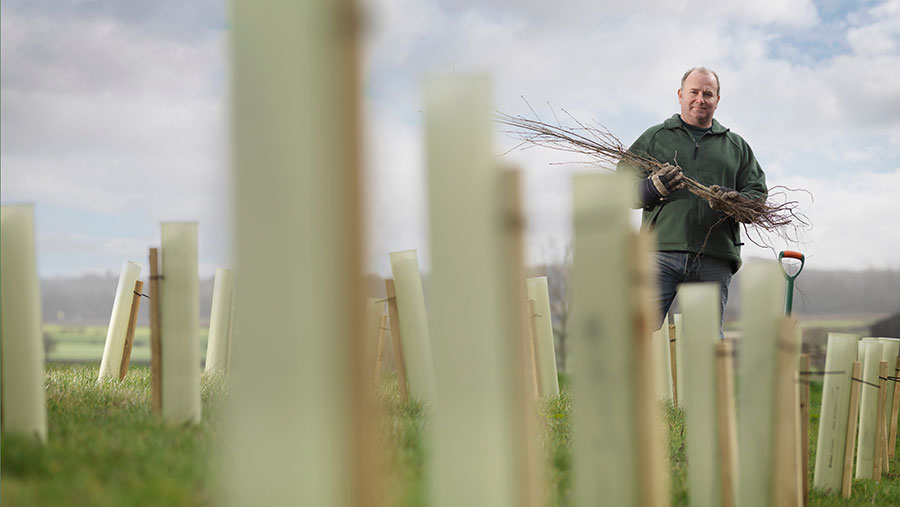Farmers have key role in fighting floods with water storage
 © Cultura/Rex/Shutterstock
© Cultura/Rex/Shutterstock Farmers have a key role to play in defending towns and cities against floods, peers have told the House of Lords.
The issue of flooding was debate by peers on Thursday (14 January).
Former shadow Defra minister Baroness McIntosh highlighted a project that enabled the Yorkshire town of Pickering to stay dry – despite rejecting plans for a £20m flood defence wall.
Instead, the town planted 29ha of woodland and constructed 167 “leaky” dams and 187 other permeable obstructions in watercourses further upstream.
See also: Farm floods – Guide to practical and financial support
Baroness McIntosh said she believed that the Pickering approach could be used in other places, particularly in areas around Leeds, Cumbria, Lancashire and York.
Land management
“We have to accept that there is no one-size-fits-all solution, so we have to adopt a mix-and-match attitude to land management,” she said.
“We should drain where drainage is appropriate, dredge where dredging is appropriate, desilt and clear away weeds where that is appropriate.
Baroness McIntosh added: “Farmers have a role to play in this by temporarily storing water on their land – but hopefully without falling foul of the reservoir safety Act.”
That view was echoed by former Environment Agency chief executive Baroness Young, who said said flood mitigation was about managing land at a catchment scale.
“It means better soil management by land managers to avoid compaction, bare ground and run-off. It also means appropriate planting of trees in the upland upstream areas to help alleviate flows.”
Planting trees would not solve the entire problem, said Baroness Young, who declared an interest as chairman designate of the Woodland Trust.
But she added: “Tree cover in the appropriate place can reduce flood peaks by up to 40%. Infiltration of water on the ground is 60 times more effective in treed areas than in grazed areas.”
Alan Smith, the Bishop of St Albans, said he hoped the government would look at redirecting subsidies to reward farmers who took additional flood mitigation measures.
These measures might include planting more trees in key areas, building temporary reservoirs to hold floodwater and even allowing land to flood in instances of high flood risk.
The bishop said: “Dialogue with farmers is vital if we want to take more proactive approaches to slowing the flow of water off upstream land.”
